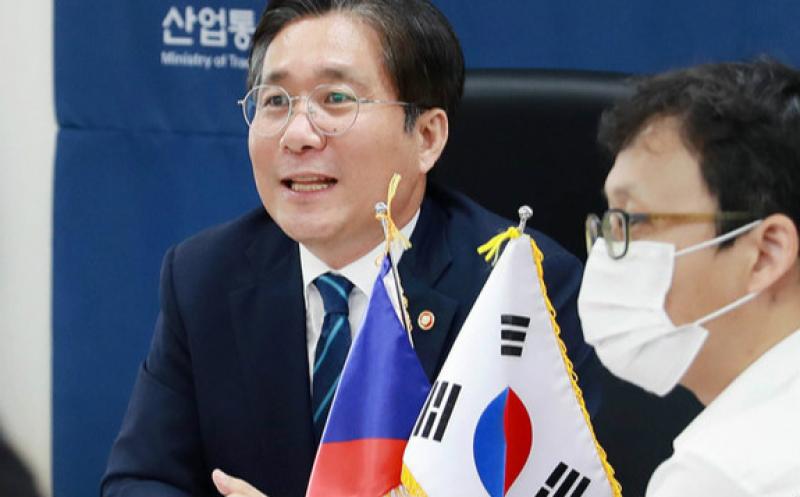The government has actively supported the effort to win an order for the Czech nuclear power plant project worth 8 trillion won ($6.7 billion). Minister of Trade, Industry and Energy Sung Yun-mo held a relay video interview with Czech Industry and Trade Minister Karel Havlicek and Nuclear Power Plant Special Envoy Jaroslav Mil, respectively, on Aug. 19 and 20.

Sung stressed to the Czech government that the Korean nuclear power industry, which has achieved in just over three decades from its first introduction to exports, is highly competitive.
He also said that the foundation for cooperation has already been prepared as the two sides have signed a number of MOUs in the field of nuclear power plant design, equipment and components, construction and nuclear fuel.
"Based on active economic cooperation in various fields between the two countries, we hope that the nuclear power plant project, which will continue for the next 100 years, will be an opportunity to greatly expand the scope of cooperation," he said.
During the meeting with Special Envoy Mil, which took place on Aug. 20, the two countries shared the current status of nuclear power plant projects and focused on detailed measures to cooperate on the entire cycle of nuclear power plants in the Czech Republic.
Sung cited the UAE's Barakah nuclear power plant project as an example and explained the technological prowess and excellence of the country's nuclear power plants.
The Czech Republic is seeking to build one 1,000-1200 megawatt (MW) nuclear power plant in Dukovany in the central region. The bidding period for the project is expected to be at the end of this year, and besides Korea, China, France, Japan, and Russia are expected to be bidding for the project.
In response, Korea Hydro & Nuclear Power Co. (KHNP) set up Team Korea, which consists of Korea Electric Power Technology Co., KEPCO Fuel, Doosan Heavy Industries & Construction Co. and Daewoo Engineering & Construction Co., to start winning order.
Through this meeting, both sides agreed to actively cooperate in high-tech industries such as artificial intelligence (AI) and electric vehicles to secure industrial competitiveness in the post-corona era.
According to the ministry, the Czech Republic is Europe's fifth-largest producer of automobiles, with output alone hitting about 1.43 million units last year.
Minister Sung noted the two countries' common interest in industrial digitalization such as AI and robots and mentioned the establishment of a "working-level cooperation channel" that focuses on bilateral cooperation.
He also proposed holding a Korea-Czech Industrial Cooperation Committee within the year to revive the two countries' cooperative momentum and promote the creation of results.
To support industrial cooperation, the two countries also decided to strengthen technical cooperation in eco-friendly and digital fields. They also agreed on the need to expand the scope of research for the "Korea-Czech Joint Funding Research and Development (R&D) Program" to AI, hydrogen, and green mobility and gradually increase the number of tasks.
An official from the Ministry of Industry and Energy said, "The government has decided to continue the cooperative dialogue between the two countries through this meeting," adding, "We will actively support Team Korea's activities involving related companies, mainly the KHNP in order to respond to orders for the Czech nuclear power plant project and strengthen competitiveness in winning orders."